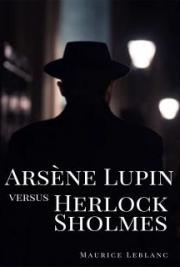Chapter 50
Audrey was in Paris on the eleventh of November. Now and then she got back there, and reveled for a day or two in the mere joy of paved streets and great orderly buildings. She liked the streets and the crowds. She liked watching the American boys swaggering along, smoking innumerable cigarets and surveying the city with interested, patronizing eyes. And, always, walking briskly along the Rue Royale or the Avenue de l'Opera, or in the garden of the Tuileries where the school-boys played their odd French games, her eyes were searching the faces of the men she met.
Any tall man in civilian clothes set her heart beating faster. She was quite honest with herself; she knew that she was watching for Clay, and she had a magnificent shamelessness in her quest. And now at last The Daily Mail had announced his arrival in France, and at first every ring of her telephone had sent her to it, somewhat breathless but quite confident. He would, she considered, call up the Red Cross at the Hotel Regina, and they would, by her instructions, give her hotel.
Then, on that Monday morning, which was the eleventh, she realized that he would not call her up. She knew it suddenly and absolutely. She sat down, when the knowledge came to her, with a sickening feeling that if he did not come to her now he never would come. Yet even then she did not doubt that he cared. Cared as desperately as she did. The bond still held.
She tried very hard, sitting there by her wood fire in the orderly uniform which made her so quaintly young and boyish, to understand the twisted mental processes that kept him away from her, now that he was free. And, in the end, she came rather close to the truth: his sense of failure; his loss of confidence in himself where his love life was concerned; the strange twisting and warping that were Natalie's sole legacy from their years together.
For months she had been tending broken bodies and broken spirits. But the broken pride of a man was a strange and terrible thing.
She did not know where he was stopping, and in the congestion of the Paris hotels it would be practically impossible to trace him. And there, too, her own pride stepped in. He must come to her. He knew she cared. She had been honest with him always, with a sort of terrible honesty.
Surveying the past months she wondered, not for the first time, what had held them apart so long, against the urge that had become the strongest thing in life to them both. The strength in her had come from him. She knew that. But where had Clay got his strength? Men were not like that, often. Failing final happiness, they so often took what they could get. Like Chris.
Perhaps, for the first and last time, she saw Clayton Spencer that morning with her mind, as well as with her heart. She saw him big and generous and fine, but she saw him also not quite so big as his love, conventional, bound by tradition and early training, somewhat rigid, Calvinistic, and dominated still by a fierce sex pride.
At once the weaknesses of the middle span, and its safety. And, woman-fashion, she loved him for both his weakness and his strength. A bigger man might have taken her. A smaller man would have let her go. Clay was - just Clay; single- hearted, intelligent but not shrewd, blundering, honest Clay.
She was one great ache for the shelter of his arms.
She had a small sense of shame that, on that day of all others, she should be obsessed with her own affairs.
This was a great day. That morning, if all went well, the war was to cease. The curtain was to fall on the great melodrama, and those who had watched it and those who had played in it would with the drop of the curtain turn away from the illusion that is war, to the small and quiet things of home.
"Home!" she repeated. She had no home. But it was a great day, nevertheless. Only that morning the white-capped femme de chambre had said, with exaltation in her great eyes:
"So! It is finished, Madame, or soon it will be - in an hour or two."
"It will be finished, Suzanne."
"And Madame will go back to the life she lived before." Her eyes had turned to where, on the dressing-table, lay the gold fittings of Audrey's dressing-case. She visualized Audrey, back in rich, opulent America, surrounded by the luxury the gold trinkets would indicate.
"Madame must be lovely in the costume for a ball," she said, and sighed. For her, a farm in Brittany, the endless round of small duties; for the American -Sitting there alone Audrey felt already the reactions of peace. The war had torn up such roots as had held her. She was terribly aware, too, that she had outgrown her old environment. The old days were gone. The old Audrey was gone; and in her place was a quiet woman, whose hands had known service and would never again be content to be idle. Yet she knew that, with the war, the world call would be gone. Not again, for her, detached, impersonal service. She was not of the great of the earth. What she wanted, quite simply, was the service of love. To have her own and to care for them. She hoped, very earnestly, that she would be able to look beyond her own four walls, to see distress and to help it, but she knew, as she knew herself, that the real call to her would always be love.
She felt a certain impatience at herself. This was to be the greatest day in the history of the world, and while all the earth waited for the signal guns, she waited for a man who had apparently determined not to take her back into his life.
She went out onto her small stone balcony, on the Rue Danou, and looked out to where, on the Rue de la Paix, the city traffic moved with a sort of sporadic expectancy. Men stopped and consulted their watches. A few stood along the curb, and talked in low voices. Groups of men in khaki walked by, or stopped to glance into the shop windows. They, too, were waiting. She could see, far below, her valet de chambre in his green felt apron, and the concierge in his blue frock coat and brass buttons, unbending in the new democracy of hope to talk to a cabman.
Suddenly Audrey felt the same exaltation that had been in Suzanne's eyes. Those boys below in uniform - they were not tragic now. They were the hope of the world, not its sacrifice. They were going to live. They were going to live.
She went into her bedroom and put on her service hat. And as she opened the door Suzanne was standing outside, one hand upraised. Into the quiet hallway there came the distant sound of the signal guns.
"C'est l'armistice!" cried Suzanne, and suddenly broke into wild hysterical sobbing.
All the way down-stairs Audrey was praying, not articulately, but in her heart, that this was indeed the end; that the grapes of wrath had all been trampled; that the nations of the world might again look forward instead of back. And - because she was not of the great of the earth, but only a loving woman - that somewhere Clay was hearing the guns, as she was, and would find hope in them, and a future. When a great burden is lifted, the relief is not always felt at once. The galled places still ache. The sense of weight persists. And so with Paris. Not at once did the city rejoice openly. It prayed first, and then it counted the sore spots, and they were many. And it was dazed, too. There had been no time to discount peace in advance.
The streets filled at once, but at first it was with a chastened people. Audrey herself felt numb and unreal. She moved mechanically with the shifting crowd, looking overhead as a captured German plane flew by, trying to comprehend the incomprehensible. But by mid-day the sober note of the crowds had risen to a higher pitch. A file of American doughboys, led by a corporal with a tin trumpet and officered by a sergeant with an enormous American cigar, goose-stepped down the Avenue de l'Opera, gaining recruits at every step. It snake-danced madly through the crowd, singing that one lyric stand-by of Young America: "Hail! hail! the gang's all here!"
But the gang was not all there, and they knew it. Some of them lay in the Argonne, or at Chateau-Thierry, and for them peace had come too late. But the Americans, like the rest of the world, had put the past behind them. Here was the present, the glorious present, and Paris on a sunny Monday. And after that would be home.
"Hail, hail, the gang's all here, What the hell do we care? What the hell do we care? Hail, hail, the gang's all here,
What the hell do we care now?"
Gradually the noise became uproarious. There were no bands in Paris, and any school-boy with a tin horn or a toy drum could start a procession. Bearded little poilus, arm in arm from curb to curb, marched grinning down the center of the streets, capturing and kissing pretty midinettes, or surrounding officers and dancing madly; Audrey saw an Algerian, ragged and dirty from the battle-fields, kiss on both cheeks a portly British Admiral of the fleet, and was herself kissed by a French sailor, with extreme robustness and a slight tinge of vin ordinaire. She went on smiling.
If only Clay were seeing all this! He had worked so hard. He had a right to this wonderful hour, at least. If he had gone to the front, to see Graham - but then it must be rather wonderful at the front, too. She tried to visualize it; the guns quiet, and the strained look gone from the faces of the men, with the wonderful feeling that as there was to-day, now there would also be to-morrow.
She felt a curious shrinking from the people she knew. For this one day she wanted to be alone. This peace was a thing of the soul, and of the soul alone. She knew







